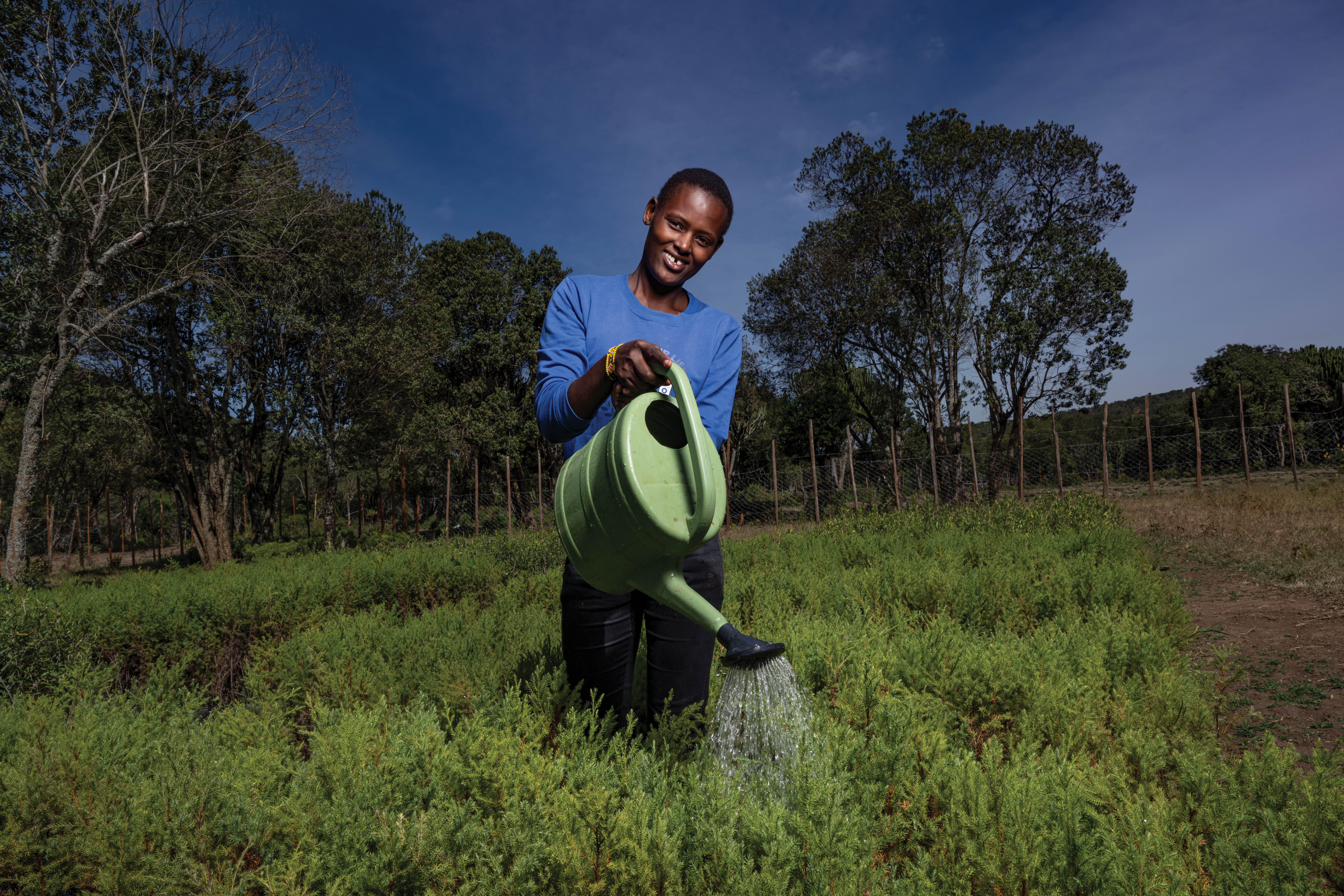REAP for Climate Resilience
Africa’s drylands, and its people, are among the most vulnerable to the impacts of climate change despite contributing the least to the problem. The people who call these regions home are facing prolonged droughts to devastating floods. In response, BOMA has created REAP for Climate Resilience, which focuses on building climate resilience while also working to end extreme poverty. Through this sustainability-driven approach, participants are empowered to launch “green” businesses, contribute to local conservation efforts, and engage in climate mitigation strategies such as purchasing water tanks, and developing tree nurseries and apiaries. By providing access to these tools and resources, BOMA is creating a network of climate-conscious entrepreneurs who are committed to protecting the environment and mitigating the impacts of climate change. This approach not only improves the livelihoods of those involved but also benefits the planet by promoting sustainable development in the face of one of the greatest challenges of our time.

After a successful two-year pilot in Northern Kenya, 90% of participants transitioned from destructive livelihoods such as charcoal harvesting to sustainable enterprises such as tree nurseries. Furthermore, 53 percent of participants have joined community conservation groups and more 40,500 tree seedlings were planted. This initial success has allowed BOMA to expand its climate-adapted product through two primary initiatives launched in 2022.
The Livelihoods and Inclusion for Transformation in Kenya (LIFT) Program, funded by IKEA Foundation and in partnership with Smart Regional Consultants Danish Church Aid, Kenya, and local community organizations, will provide opportunities for 15,600 people living in extreme poverty focusing on women, youth, refugees and displaced people in Samburu and Turkana counties. Through the program, participants will launch and build 3,650 environmentally friendly enterprises, with an expected benefit to over 93,000 people in Northern Kenya over two years. The three-year initiative will be evaluated by independent researchers from Innovations for Poverty Action in a randomized controlled trial, assessing the effectiveness of BOMA’s climate-focused approach for future expansion.
In Ethiopia, BOMA is planning the enrollment of 2,100 new entrepreneurs in Borena Zone, Oromia Region, Ethiopia. Ethiopia is the second most populous nation in Africa and boasts a rapidly growing economy, but important socio-economic indicators including per-capita income, gender equality, and food security remain among the lowest in the world. BOMA’s Ethiopia REAP for Climate Resilience program, generously funded by Trafigura Foundation, empowers participants to develop sustainable enterprises that offer a way out of extreme poverty for them and their dependents. The program places a strong emphasis on natural resource management and promotes regenerative livelihoods, such as tree nurseries and apiaries. With a goal of graduating 13,000 individuals, the program also aims to contribute to the restoration of degraded forests and pasture in the drylands of southern Ethiopia.
